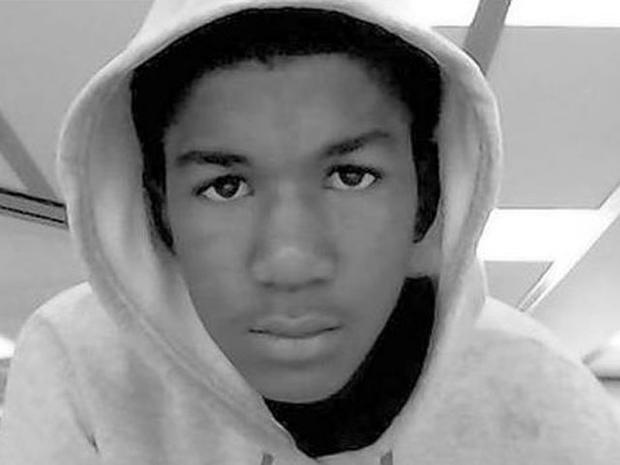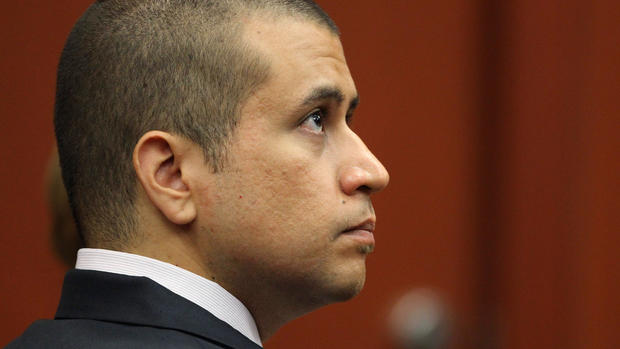Trayvon Martin, one year later: Fla. teen's death brings few changes to self-defense laws
(CBS) - In the months after Florida neighborhood watch volunteer George Zimmerman fatally shot an unarmed 17-year-old named Trayvon Martin during an altercation, the national conversation turned to whether laws allowing armed citizens to "stand your ground" against a perceived threat of bodily harm were causing more harm than good.
PICTURES: George Zimmerman faces murder charge
One year after Martin's death, not much has changed.
Just last Friday, on Feb. 22, a 19-member task force commissioned by Florida Governor Rick Scott to study the state's controversial 2005 self-defense law announced that they saw no reason to make changes to the statute, which allows citizens to use deadly force in a situation where they have the "presumption of fear of death or great bodily harm."
Florida defense attorney Mitch Stone was not surprised at the outcome.
"We are a state that is very interested in the Second Amendment," says Stone, who has litigated multiple cases involving claims of 'stand-your-ground.' "A lot of people here carry guns and are adamant that nothing should be done to change that, in any way, shape or form."
READ: The Trayvon Martin case exposes the realities of a new generation of self-defense laws
Since 2005, approximately two dozen states have adopted Florida-style self-defense laws. The language of the laws varies by state, although many were written with the help of the National Rifle Association. Most of the measures alter the earlier self-defense laws by eliminating a so-called "duty to retreat," and allow citizens to meet force with deadly force. What this means, effectively, is that a person who perceives he is in danger of great bodily harm can kill or harm in self-defense even if he could plausibly have escaped the situation.
Despite the heated debate following Martin's death, not a single one of these state laws has been repealed.
"It's a philosophical debate we have been having for a hundred years," says Ekow Yankah, a professor of law at New York's Cardozo School of Law. "Should I have to retreat if someone is threatening me?"
In December 2012, Florida State Sen. Christopher L Smith (D) proposed a bill amending the state's law by adding a duty to retreat, if it's possible, before using deadly force. The bill was referred to committee, where it remains.
On Monday, Trayvon Martin's mother, Sybrina Fulton, told NPR that she is still pushing a so-called "Trayvon Martin" amendment, which would make it more difficult for someone who initiates an altercation to claim immunity under the state's self-defense law. Fulton presented the idea to the Florida task force in June 2012, but it was not included in their final recommendations.
The Trayvon Martin case received so much attention - even President Obama weighed in, saying that if he had a son, "he'd look like Trayvon" - not only because of the circumstances surrounding the teen's death, but because police declined to arrest Zimmerman for nearly two months after he shot and killed the unarmed youth.
Zimmerman, who has pleaded not guilty to second degree murder, has claimed Martin attacked him and that he shot in self defense. But many have argued that Zimmerman, who was in his car when he spotted Martin walking through his gated community on a rainy evening and deemed him "suspicious," did not have to approach the teen in the first place. He had called police to report the his concerns about Martin and was advised by a dispatcher to remain in his vehicle and that authorities would be there shortly.
On April 22, Zimmerman's attorneys plan to ask the court to dismiss all charges against their client under "stand your ground."
What the Martin case may have done - especially when considered alongside the Aurora and Newtown mass shootings and subsequent calls for renewed restrictions on firearms and firearm purchases - is awaken a national debate that has been dormant since the assault weapons ban signed into law by President Clinton expired in 2004.
As the Martin case gained steam, news organizations - and advocacy groups - began digging. Was "stand your ground" really keeping people safer? According to an analysis done by the Tampa Bay Tribune of more than 200 cases where "stand your ground" was invoked in Florida, 70 percent of those accused avoided prosecution, and "defendants claiming 'stand your ground' are more likely to prevail if the victim is black."
Professor Tom Blomberg, the Executive Director of the Center for Criminology and Public Policy Research at Florida State University (FSU), moderated a panel convened by the governor's task force that recommended no changes to "stand your ground." Blomberg told Crimesider that although he believes the task force tried to be balanced in its deliberations, there was very little empirical evidence about the impact of "stand your ground" to assist them.
"What was fundamentally missing was a sober, objective analysis of the history of these laws, and the cases that have been adjudicated since their enactment," Blomberg says.
Blomberg says that last summer he approached the task force's leader, Lt. Gov. Jennifer Carroll, offering FSU's resources to capture and study the data he thought would assist them as they decided whether to recommend changes to the law. But despite initial interest, Blomberg says that the green light never came.
Defense attorney Mitch Stone says that even if the death of Trayvon Martin doesn't serve to stem the tide of "stand your ground" laws, the legacy of the shooting will be felt in Florida courtrooms for years as prosecutors force people who have killed or maimed in the name of self-defense to defend themselves in court.
"[Prosecutors'] position is, we're not going to make this easy on people," explains Stone. "They want everyone to know that you don't get to do whatever you want with a gun or a knife. You better be able to prove you were in danger because if you lose, you might end up in prison."
Complete coverage of the Trayvon Martin case on CBS News


